Estimated reading time: 7 minutes
There are few products so universally recognized that they are recommended for almost everything. For keeping things in place, there’s duct tape, and for loosening things up, there’s WD-40. Originally formulated in the early 1950s by the Rocket Chemical Company in San Diego as an anti-corrosive treatment for missiles, it became commercially available in 1958.
You can find lists online that promote it as a cure-all for every lubrication need imaginable and more, from silencing squeaky hinges to removing stains from the toilet bowl.
There are only two problems with WD-40. One: it contains some nasty petrochemicals that you might not want in your home or around your family. And two: it doesn’t really live up to the hype. In many tests by experts, WD-40 is discovered to be vastly inferior to other, less-smelly products for many of the uses it is supposed to excel at.
Want to save this post for later? Click Here to Pin It On Pinterest!
The bad news about WD-40 is that it isn’t actually a very good lubricant. It makes things move more easily because it’s a solvent that can dissolve gunk and rust, which makes hinges and other moving parts glide more smoothly.
The other bad news is that, even if its constituent parts are considered nontoxic, the Material Safety Data Sheet (MSDS) for WD-40 doesn’t paint a very rosy picture of its active ingredients:
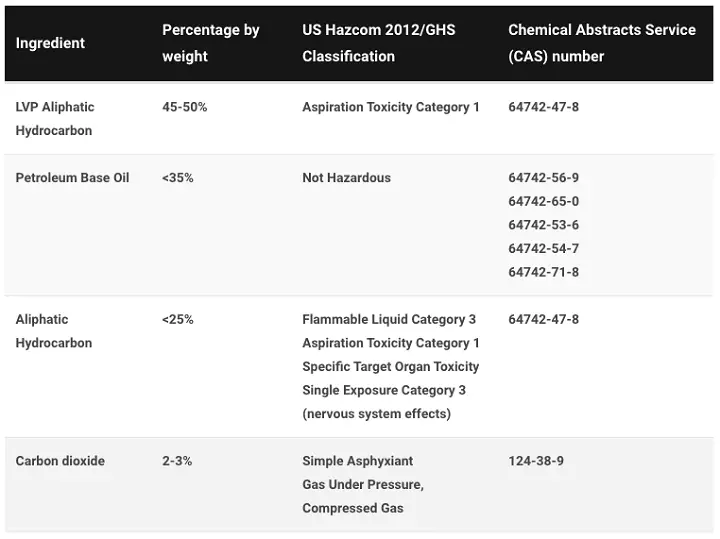
The good news is that there are highly effective alternatives to this over-hyped brand that you can make easily and for next to nothing at home. There are a couple different types of homemade WD-40 recipes.
You can decide which one is right for you by asking the following question: Am I looking for something to help with lubrication, or am I in need of some rust prevention? Or, do I need a solvent to help loosen up a corroded bolt? For lubrication or rust prevention, a completely natural DIY recipe will work wonders. But if you need a solvent, you’ll want to use the second recipe, for a homemade solvent solution.
DIY Alternatives to WD-40
Simple, No-Nonsense Lubrication
If all you require is lubrication, then vaseline or petroleum jelly can work wonders. The advantage of these products is that one tub is probably enough to last you a lifetime, and you can apply it very precisely with a cotton swab. The downside is that these are both petroleum-derived products, so you may wish not to use them.
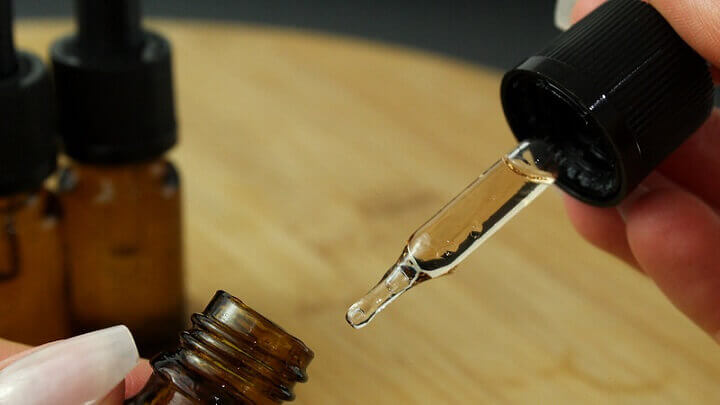
All-Natural DIY Lubricant and Rust Preventative Coating
For a homemade lubricant that works as well as WD-40 and doesn’t have any chemicals, you can make a mixture of cooking oil and water. Getting the right ratio is important—you’ll want three parts oil to one part water. Olive oil can work well for this purpose, but you need to use the most refined, extra virgin oil you can get your hands on. Otherwise, it can get sticky or gummy and attract dust over time.
You can also use orange oil or grapeseed oil to great effect. If you want a completely organic product, you may want to look into organic safflower oils, soybean oils, and sunflower oils.
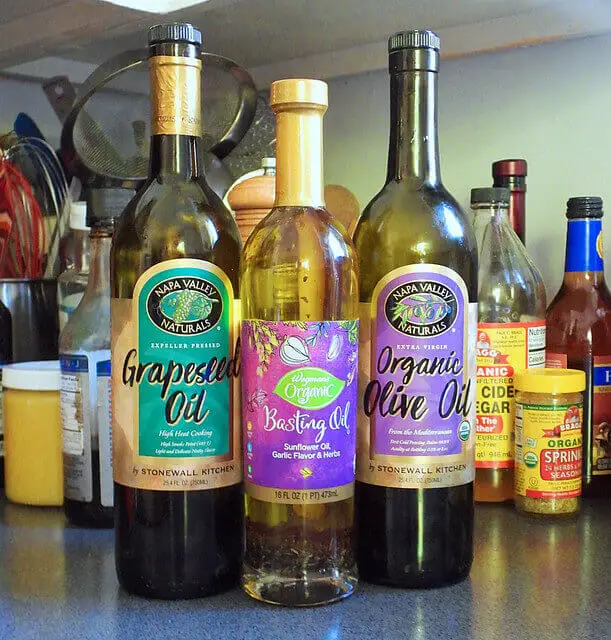
Combine three parts oil and one part water and shake vigorously before use. The water is used primarily as a vehicle for helping the oil move more freely into cracks and over surfaces and is intended to evaporate, leaving only the oil behind.
Putting the mixture into a squeeze bottle with a small nozzle that can be easily directed in a stream (rather than sprayed) or into a bottle with an eyedropper can help you avoid making a mess when you use your mixture.
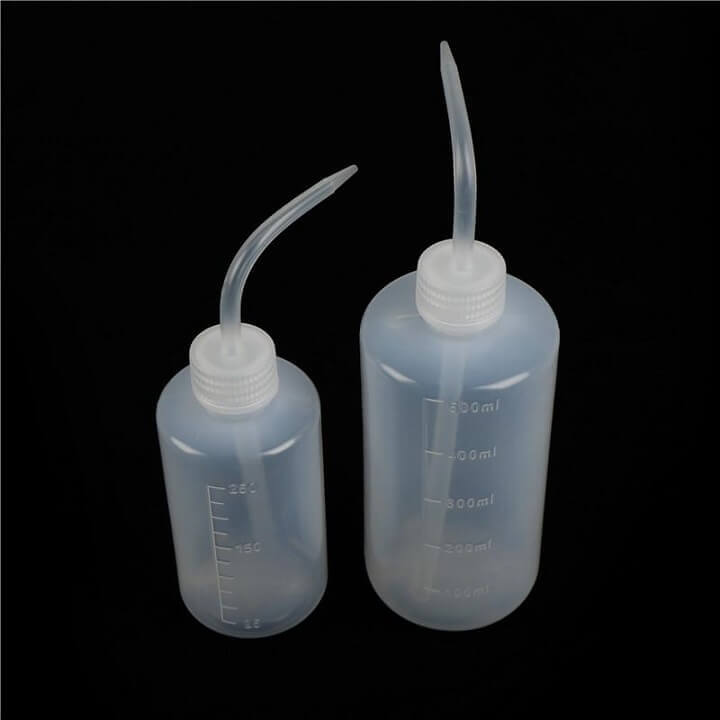
One word of caution: most cooking oils will degrade rubber over time, so be careful about allowing this oil lubrication to come into contact with rubber parts.
DIY Lubricant and Anti-Corrosion Solution
If you need something that can be used both to lubricate moving metal components and/or break up the rust to loosen corroded parts, then you’re going to want to use a little something extra in your concoction: acetone.
Commonly found in nail polish remover, acetone is actually a ketone that occurs naturally in our bodies and in nature. Despite that, it is still a chemical compound that you will want to use sparingly and to avoid too much direct exposure to. Avoid getting acetone on your skin or breathing in large amounts of the fumes it produces as it evaporates.
However, the benefits of using acetone in a lubricating/anticorrosive fluid far outweigh the risks. It is a wonderful solvent that can penetrate into corroded areas and dissolve grease, paint, and various organic substances. It supplements the lubricating action of oils by cleaning the surfaces it is applied to.
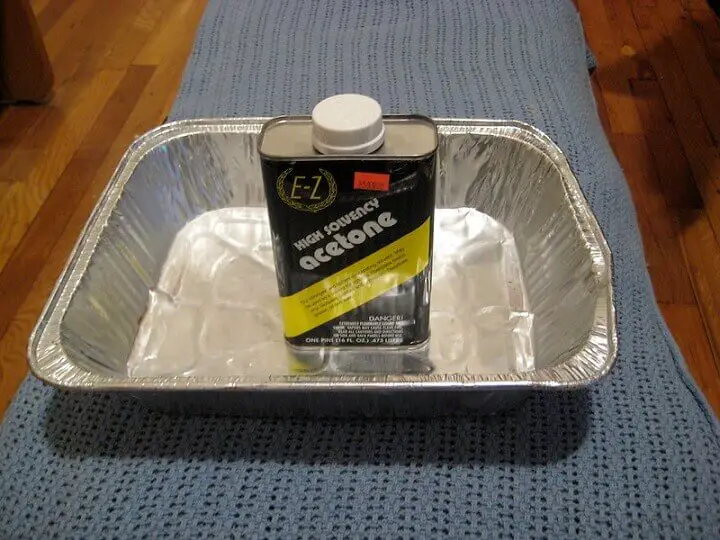
To create this deep-penetrating, anti-corrosive lubricating solution, mix together one part oil to nine parts acetone and shake well. As in the other mixtures above, you can use a spray bottle, squirt bottle, or eyedropper to apply it to surfaces with precision.
Applications for DIY WD-40

Just like its more chemical, commercial counterpart, your DIY WD-40 can be used in a wide array of scenarios.
- Quieting squeaky hinges
- Lubricating rusty bicycle chains
- Loosening rusted bolts and nuts
- Removing the gunk left from labels on glass jars
- Getting gum out of children’s hair or pet’s fur (don’t use the acetone mix for this)
- Cleaning up cloudy, dirty vehicle headlights
- Preventing rust on metal surfaces of power tools
- Lubricating the cutting edge of drill bits on a drill press
- Treating sawblades and garden cutting tools to prevent rust
- Removing makeup stains from fabric before laundering
- Erasing crayon drawings from furniture
- Removing a ring that is stuck on a finger
- Lubricating a stubborn zipper
- Cleaning paint and residue off leather goods
- Freshening up faded outdoor plastic furniture
- Removing decals from windows
- Cleaning and polishing brass, copper, and silver surfaces
As you can see, the list of applications for your WD-40 alternative is almost endless. What makes your nontoxic version better than the original is that you can use it anywhere you like, without worrying about toddlers or animals ingesting it.
Let us know what uses you find for your version, and how well it works!
Like this post? Don't Forget to Pin It On Pinterest!




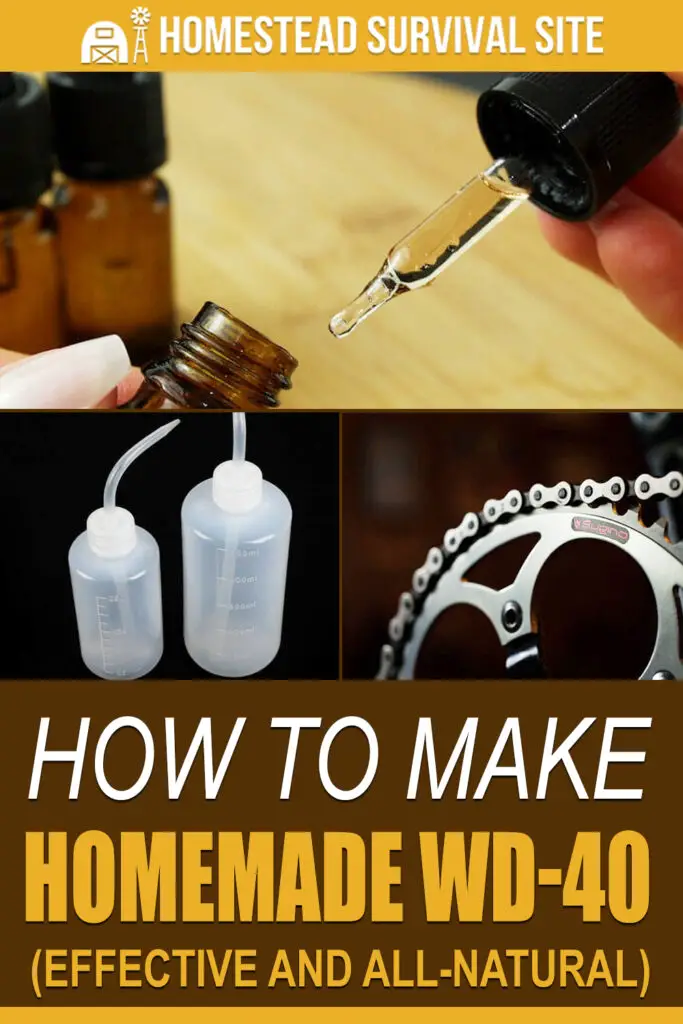

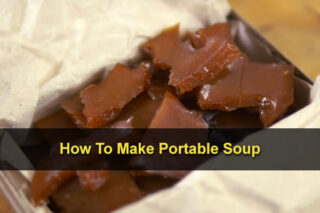
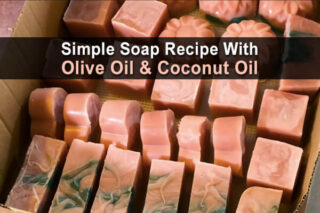

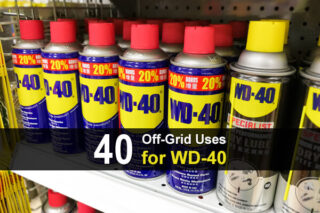


Actually WD-40 was created as a water displacement spray for electrical boxes that have gotten wet. It repels and moves water away from wires and contacts. Most people use other products for their firearms, sewing machines or other mechanical devices and reserve the WD-40 for things like door hinges. People who know understand it’s useful, but it’s not the ultimate solution for everything.
Second thing is that many people will suggest olive oil or cooking oil to protect a knife, but most prefer mineral oil because cooking oils turn rancid. But we can always use oil and then wipe it or wash it away and avoid the issue of rancid oil.
I get your intentions and it’s cool, but like most people, I’m going to have to use whatever chemicals are necessary to keep my car running and other things in working order. Unfortunately cooking oil and water and other natural things will not work or make viable substitutes for certain applications.